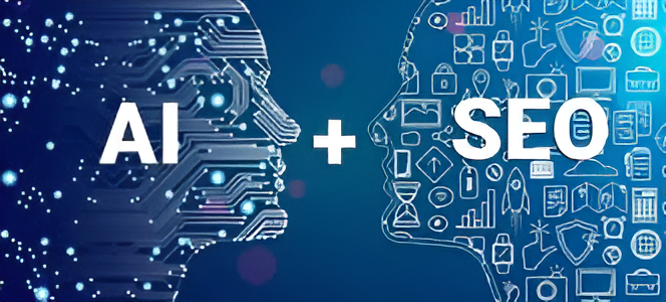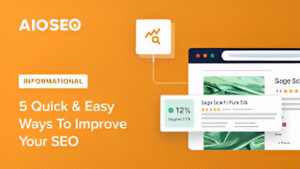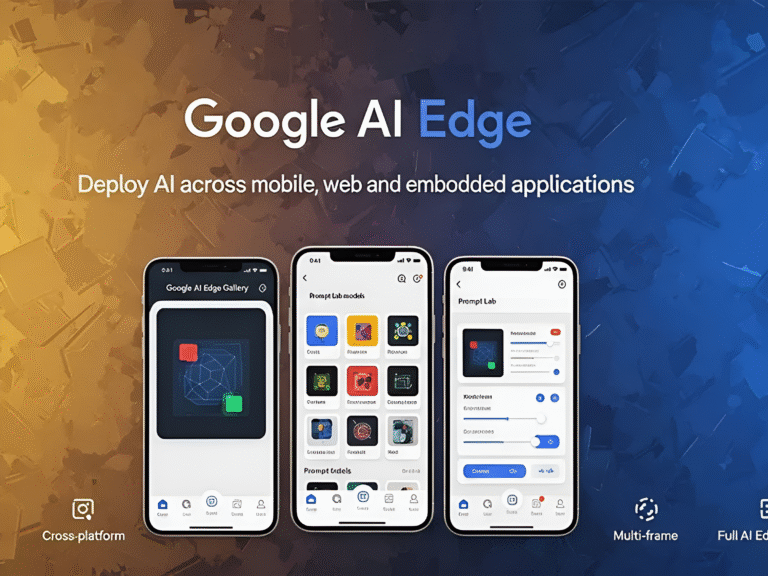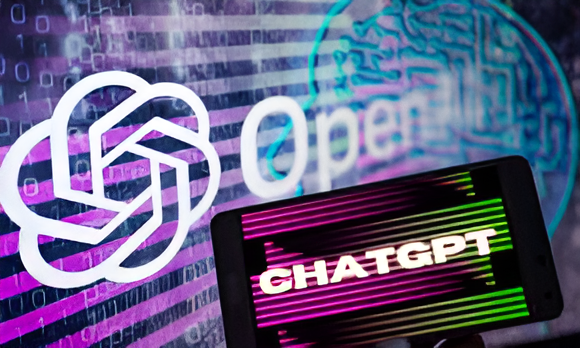
In the rapidly changing landscape of digital marketing, Search Engine Optimization (SEO) is essential for businesses aiming to connect with their target audience. Due to the data explosion and the rise of online competition, conventional SEO strategies have become inadequate. Introducing AI SEO—a groundbreaking method that utilizes artificial intelligence to improve, automate, and expand SEO activities. With the evolution of search engines like Google through AI-driven algorithms, marketers need to adjust by incorporating smart tools and tactics into their SEO workflow.
This article will delve into the nature of AI SEO, its functioning, advantages, essential tools, and its role in shaping the future of search engine optimization.

What is AI SEO?
AI SEO (Artificial Intelligence Search Engine Optimization) involves utilizing machine learning, natural language processing (NLP), and data analytics driven by artificial intelligence to enhance websites and content for improved visibility on search engines.
In contrast to conventional SEO, which depends on manual keyword research, backlink generation, and technical assessments, AI SEO can analyze large datasets, identify patterns, make forecasts, and automate processes to enhance a website’s ranking and performance more quickly and effectively.
Why AI is Essential in Modern SEO
Search engines such as Google, Bing, and Yahoo have incorporated AI into their algorithms to improve their understanding of user intent, context, and content quality. AI-powered features such as Google’s RankBrain, BERT, and MUM influence content ranking.
If search engines employ AI to assess content, it stands to reason that marketers should utilize AI to enhance their content for search.
How Artificial Intelligence is Changing SEO
1. Smarter Keyword Research
AI tools can assess millions of queries and recommend high-ranking keywords based on:
- Volume of searches
- User intention
- Rivalry
- Time-related trends
For instance, resources such as Semrush’s Keyword Magic Tool or Ahrefs employ AI to propose long-tail keywords that human marketers may miss.
2. Content Optimization and Creation
AI is able to:
- Examine high-ranking content and propose enhancements
- Find missing content
- Create outlines and even draft articles that are SEO-friendly
Marketers can utilize tools such as Surfer SEO, Frase.io, and Jasper AI to produce optimized content informed by SERP analysis, NLP guidelines, and readability scores.
3. Voice Search and Conversational AI
Due to the emergence of voice assistants such as Siri, Alexa, and Google Assistant, AI SEO is placing greater emphasis on optimizing for conversational queries. These queries are usually longer, more natural-sounding, and framed as questions.
AI tools can assist you in recognizing and enhancing content for voice-oriented keywords such as:
- “Which laptop is the best choice for students, costing less than 50000?”
- “What is the method for baking banana bread at home?”
4. Personalized User Experiences
Such algorithms tailor search outcomes according to:
- Place
- History of searches
- Type of device
- Actions of users
For competition, websites need to provide tailored content and user experience. AI tools such as chatbots and recommendation engines play a role in maintaining user engagement and lowering bounce rates, both of which have a beneficial effect on SEO.
5. Predictive SEO
AI is capable of predicting a page’s potential performance based on different SEO elements. Additionally, it can forecast content trends prior to their peak.
For example, MarketMuse and BrightEdge employ predictive analytics to recommend topics for your next focus, aiding you in staying ahead of rivals.
6. Automated SEO Audits
It can take a lot of time to carry out a manual SEO audit of a website. AI-driven applications such as Screaming Frog, Sitebulb, or DeepCrawl can:
- Identify broken links
- Examine the speed of the page
- Resolve duplicate content issue
- Propose chances for internal linking
This automation contributes to a more efficient upkeep of technical SEO health.
7. Improved Image and Video SEO
With the help of computer vision and image recognition algorithms, AI can identify images and videos, facilitating search engines’ comprehension of multimedia content.
Utilizing AI to enhance image alt-texts, video transcripts, and metadata guarantees improved positioning on Google Images and YouTube search results.
Top AI Tools for SEO in 2025
Here are several effective tools that assist companies in optimizing their SEO using AI:
| Tool | Key Features |
|---|---|
| Surfer SEO | Real-time content optimization based on SERPs |
| Frase.io | AI content briefs, question analysis, NLP optimization |
| Jasper AI | AI copywriting and blog generation |
| Clearscope | Keyword targeting and readability enhancement |
| BrightEdge | AI-driven content performance and SEO insights |
| MarketMuse | Content strategy and predictive performance |
Benefits of Using AI in SEO
- ✅ Speed and Efficiency: Automates repetitive tasks like audits and keyword research
- ✅ Data-Driven Decisions: Makes smarter SEO strategies with predictive analytics
- ✅ Content Scalability: Generates high-quality content faster
- ✅ Real-Time Optimization: Adjusts strategies based on live performance metrics
- ✅ Competitive Advantage: Stay ahead with trend predictions and SERP analysis
- ✅ Improved ROI: Higher search rankings lead to better organic traffic and conversions
Challenges and Considerations
Although AI SEO offers a multitude of advantages, there are several considerations to bear in mind:
- Over-dependence on AI: For storytelling and engagement, human creativity remains crucial.
- Data Privacy Concerns: AI tools typically necessitate access to substantial data volumes.
- Changes to algorithms: Since AI models are updated on a constant basis, it is essential for marketers to keep themselves informed.
- Learning Curve: Marketers must enhance their skill set to utilize AI-powered tools effectively.
Future of AI in SEO
Without a doubt, the future of SEO is driven by AI. With the advancement of search engines and the evolution of user behavior, AI will take on a more prominent role in content discovery, personalization, and automation.
Important future developments include:
- multimedia content produced by AI
- SEO for voice search driven by AI
- Monitoring of SERPs in real time
- Stronger fusion with eCommerce and mobile SEO
- Link building automation that is more intelligent
Companies that embrace AI in their SEO strategies sooner will benefit from enhanced rankings, increased visibility, and improved conversion rates.
Conclusion
AI SEO is more than a passing fad; it represents the future of digital marketing. Businesses can devise SEO strategies that are more intelligent, quicker, and tailored to the individual by merging human ingenuity with AI. No matter if you’re optimizing content, doing keyword research, or examining your competitors, AI tools can provide you with a competitive advantage.
To thrive in 2025 and beyond, welcome AI as a formidable ally in your SEO journey rather than viewing it as a substitute. The earlier you begin, the more of a lead you’ll have.
For more Information : Health tips , Entertainment, food Technology







